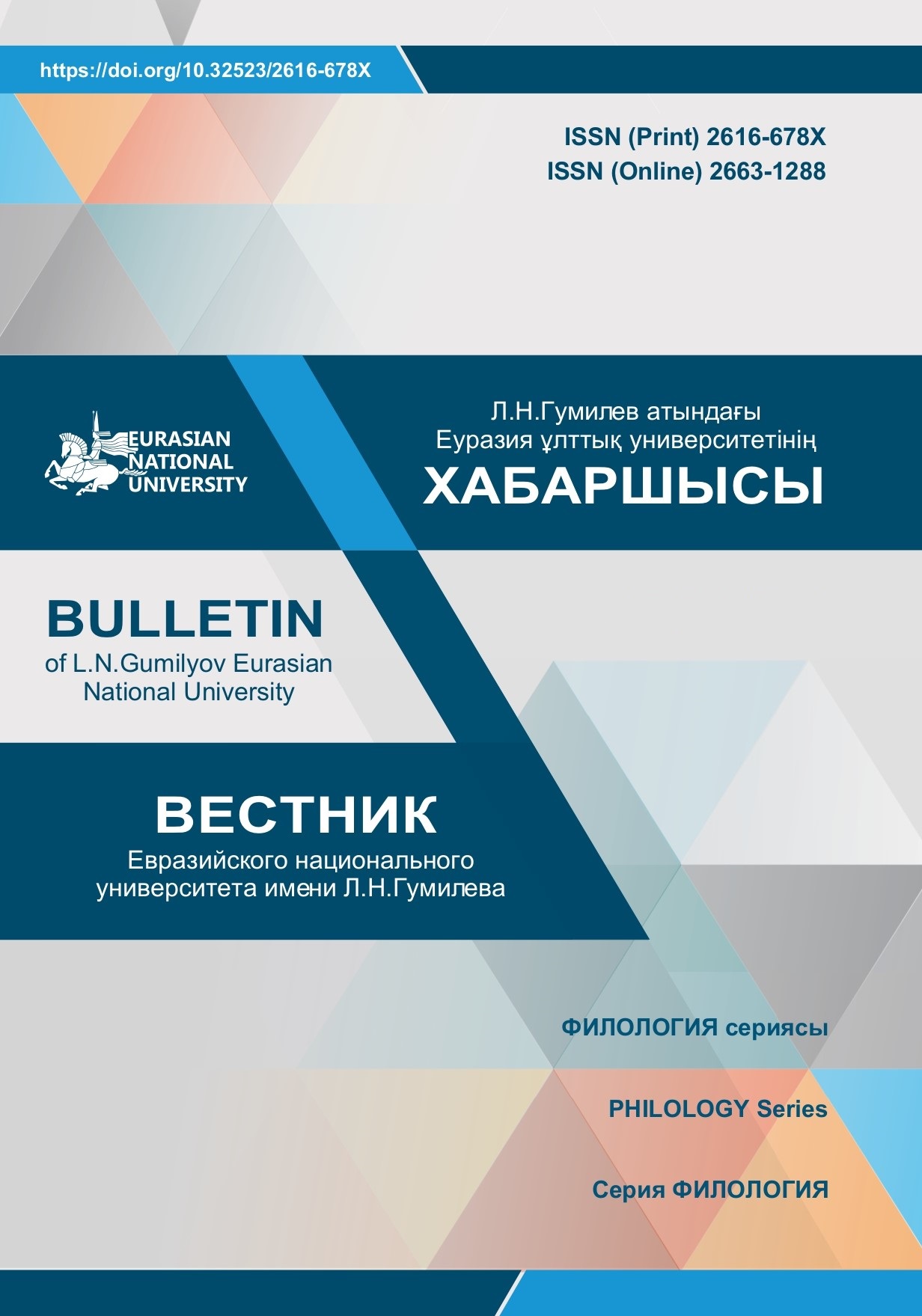Діни дастандардағы теонимдер
Қаралымдар: 218 / PDF жүктеулері: 300
DOI:
https://doi.org/10.32523/2616-678X-2022-141-4-43-54Кілт сөздер:
діни эпос, теонимдер, ономастика, антропоним, лексика, Құдай, пайғамбарАңдатпа
Теонимдер қазақ тіл білімі үшін, шартты түрде алғанда, лексикологияның
жаңа бір нысаны болып саналады. Қазақ тілі сөздік құрамында бұлардың алар орыны
ерекше. Себебі бұларда, дінтану тұрғысынан алсақ, терминдік сипат; әдеби тіл тұрғысынан алсақ, пассивтік, кірмелік; стилистикалық тұрғыдан алсақ, ерекше тармақ
құрайтын сипат; атауыштық тұрғыдан алсақ, жалқы-жалпылық сипат болады. Сол
себепті зерттеудің алғашқы қадамында мұның сөздік құрамға енуін бақылау қажет
болады. Бұл міндетті орындауға діни фольклор көп көмек көрсетеді. Сол себепті теонимдердің қолданылу кеңістігі ретінде діни дастандардағы тілдік айғақтар талдауға
тартылады.
Діни дастандар – халық ауыз әдебиетінде ерекше орын алатын фольклорлық жанр. Қазақ діни эпостары Құранға қатысты, мұсылман қауымы, ислам жайлы мифтер мен
аңыздардан, Пайғамбар сүннеті мен хадистерден тұрады. Бұл жанрдағы дастандардың
тақырыптық ауқымы мұсылман батырлары жайлы баяндауды, Пайғамбардың қызметтерін, қасиетті соғысты да қамтиды. Барлық шығармалар белгілі бір мақсатқа
арналады, яғни онда ислам діні дәріптеліп, насихатталады. Осы ретте діни шығармалар
тілін зерттеу өзекті деп есептейміз. Ал діни дастандардың тілін ерекше айрықшалайтын лексикалық топ – теонимдер. Теонимдерді қазақ діни фольклорында, әсіресе діни
дастандарда көп кездестіруге болады.
Мақалада діни дастандардағы теонимдер жинақталып, олар Құдай сөзімен мағыналас
сөздер, періште есімдері, пайғамбар есімдері және сахабалар есімдері болып бөлінеді. Әр
топтағы теонимдерге діни дастандардан мысалдар алынып, жеке-жеке талдау жасалып,
түсіндірмесі беріледі, этимологиясына барлау жасалады.







